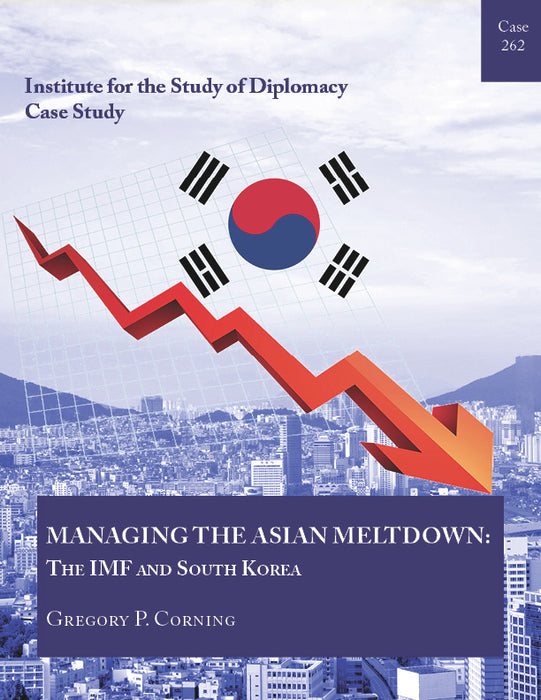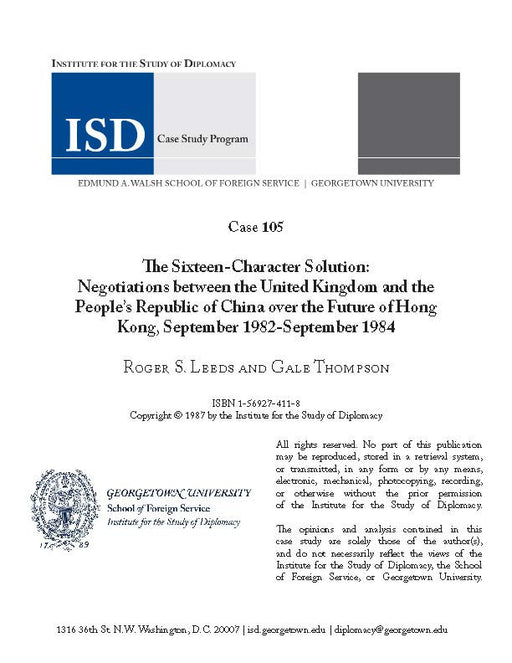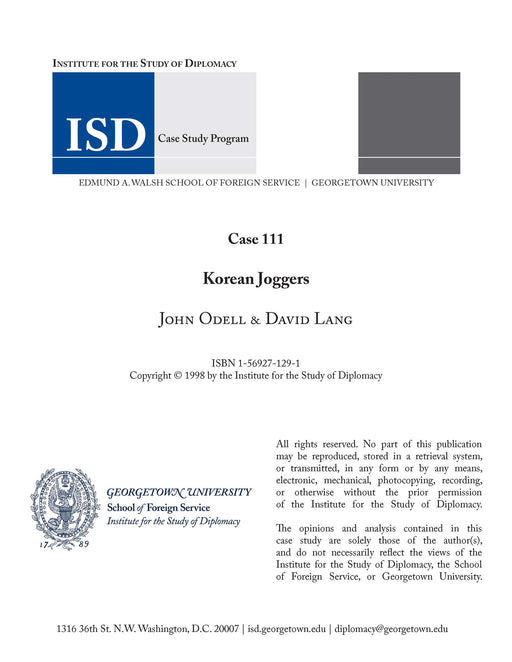Case 262 - Managing the Asian Meltdown: The IMF and South Korea
Corning, Gregory P.
This case study asks students to consider the causes of the Korean economic crisis of 1997-1998 and assess the appropriateness of the International Monetary Fund’s response to it. On a more general level, the case explores the evolving role of the IMF by asking students to think about the responsibility of both lenders and borrowers in the Asian crisis, the problem of moral hazard, and the necessity of structural adjustment in crisis countries. It is designed for use in courses dealing with international political economy or East Asian politics. Although the study will work best for students who already have some background on the IMF and exchange rates, appendices on both subjects have been included to make the case as self-contained as possible.
The case works on two levels. First, it introduces students to the “Asian miracle” through the example of South Korea. It then points to some of the strengths and weaknesses of developmental states in discussing the Korean economy’s rise and its dramatic fall in 1997. The case then asks students to assess different explanations of the meltdown in South Korea in evaluating the IMF's response to the crisis. The case also explores the evolving role of the IMF and the responsibility of both lenders and borrowers in the Asian crisis, the problem of moral hazard, and the necessity of structural adjustment in crisis countries.



